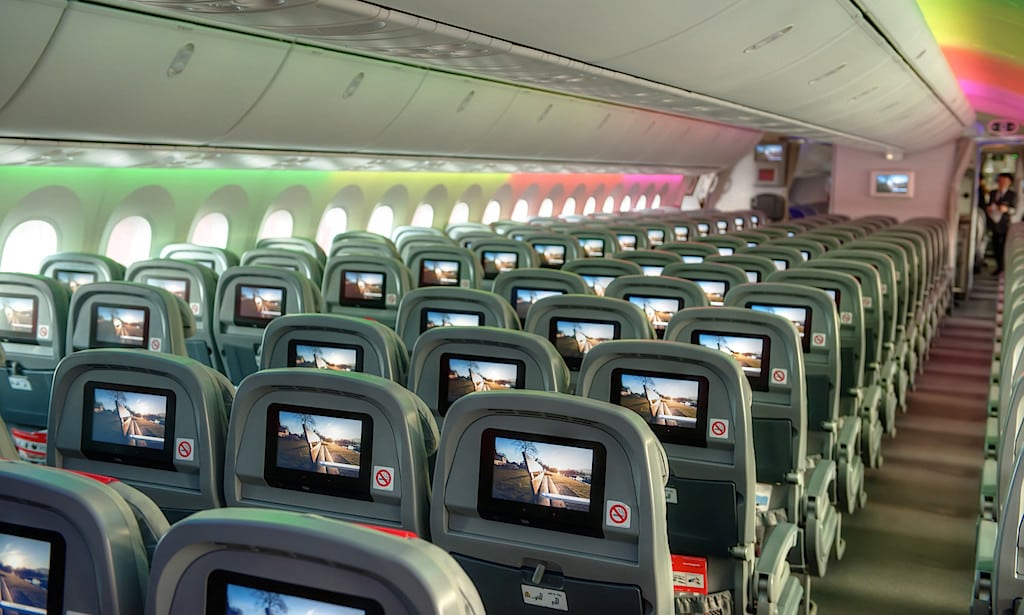Skift Take
It's nice that the DOT finally got around to approving Norwegian's Irish unit to fly to the United States. But this is not as big of a game-changer as some have suggested. Norwegian was going to grow in the United States and offer low fares on transatlantic flights, regardless of whether this happened.
On Monday, three days after the U.S. government cleared the airline’s Irish subsidiary to fly to the United States, Norwegian Air Shuttle announced a slew of new flights between the UK and several U.S. cities.
It might be easy to tie the two matters together, but as with most things the company has done, it’s not that simple.
The extra Boeing 787 flights, from New York, Los Angeles, Oakland, Fort Lauderdale, and Orlando, don’t have much to do with Friday’s Ireland news.
That’s because, at least at first, the new London Gatwick flights will not operated by the company’s Irish arm. Instead, they’ll be flown by the carrier’s Norway-based business unit. For several years, this part of the company has been able to fly as much as it wants from anywhere in the European Union (including Ireland) to anywhere in the United States. That’s the case because Norway, though not a member of the European Union, signed onto the Open Skies agreement between the United States and the EU.
The U.S. Department of Transportation’s decision to allow Norwegian’s Irish unit to fly to the United States could be a big deal for American and European consumers, and it might pave the way for more trans-Atlantic flights at low costs, as many media outlets have suggested. But so far, Norwegian has not said much about how it will use its Ireland-based operation. The company could transfer the bulk of its U.S. flights to the Irish certificate, or it could continue the status quo, with the Norway-based airline doing the flying.
“It’s too early to say just now,” airline spokesman Anders Lindstrom said.
It’s also possible some London routes will be transferred to yet another certificate. Norwegian has a UK operating permit, and when the UK leaves the EU, the company may need to rely on that authority for its flights. Norwegian’s UK arm does not have the right yet to fly to the United States, but it should eventually receive approval.
For passengers, it probably doesn’t matter what unit flies the routes. Norwegian has a different model than legacy carriers, and it flies the most fuel-efficient planes, packing them with more seats than the competition. The company has proven it can offer low trans-Atlantic fares while using its Norway certificate, and it’s not clear that fares would drop if the company switches which unit flies U.S routes.
Norwegian has not done a great job of educating consumers on why it needs four operating certificates — two in Norway, one in the United Kingdom and one in Ireland.
Usually, when asked about it, company executives say the reason is traffic rights. They note that, while airlines based in Norway can fly as much as they want to the United States, they’re more limited in traffic rights to regions of the world, including to Asia, India and Africa. There’s also the matter of work rules, with Ireland generally have more relaxed labor laws than Norway.
For those reasons, the U.S. government’s approval of the Irish subsidiary is good news for Norwegian. Since Ireland is an E.U. member, airlines based in the country have far more options for international routes than airlines in Norway. If Norwegian shifts some trans-Atlantic flying to the Irish certificate, it might be able to fly the same plane on a complicated routing from the United States to Europe to Asia. That could help the airline increase daily aircraft utilization, which would reduce its costs. And by using the Irish base more, Norwegian could also gain more flexibility with how it uses its flight attendants and pilots.
Norwegian does have a big decision to make soon. Next year, it will start taking delivery of its first Boeing 737 Max aircraft, a long-range version of the single-aisle plane. The company must decide which of its business units will receive each airplane.
This, too, is not set yet. “We do not know exactly now what [operating certificate] the new 737 trans-Atlantic flights will operate under,” Lindstrom said.
The one exception is the Boeing 737s that will fly from Ireland to the United States. Though those could operate under the Norway-certificate, Norwegian has already decided that the 737s assigned to those routes will belong to the Irish airline. Lindstrom said the company will make an announcement soon detailing what new routes it will add with the Boeing 737s, both from Ireland and elsewhere.
Norwegian’s situation may be the most controversial, but it’s not the only airline with multiple operating certificates. EasyJet, for example, has one operating certificate in the UK and another in Switzerland. It is also planning to add a third somewhere in the European Union. The company has said this could be necessary, because some of the routes it operates may not be feasible when the UK leaves the EU.
Even larger, legacy airline companies have multiple certificates. International Airlines Group has separate operating certificates for all its business units — British Airways, OpenSkies, Vueling, Air Lingus and Iberia.
The Daily Newsletter
Our daily coverage of the global travel industry. Written by editors and analysts from across Skift’s brands.
Have a confidential tip for Skift? Get in touch
Tags: dot, low-cost carriers, norwegian air
Photo credit: Norwegian Air, which relies on the Boeing 787 for long-haul flights, will continue to offer low fares on transatlantic flights. Norwegian Air
